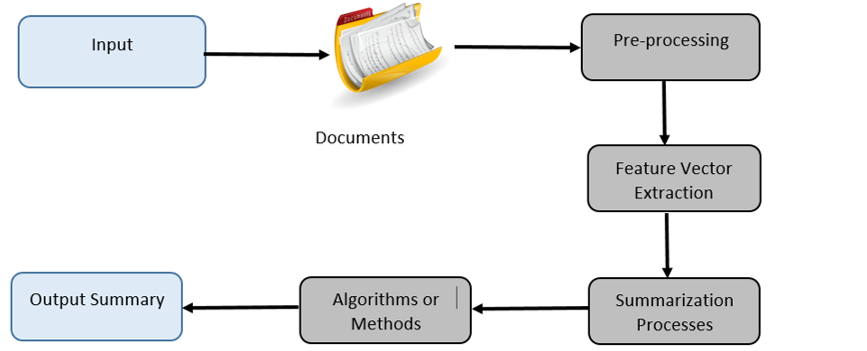Text summarization based on human behavioural learning model

Keywords:
Data Science, Big data, automated text summarization, Artificial Intelligence, optimized deep learning methods, computational cognitive modelsAbstract
Summarization of text documents has begun to play an important role in information collection. Summarization has traditionally been done physically by humans, which has resulted in a time-consuming operation as the volume of data has become more and larger. With the goal of resolving this issue, automated text summarization has become a critical need for efficiently managing the congested data. Previous research on text summarization has focused on summarizing pre-specified materials with no extra requirements, and is sometimes referred to as generic summary. Automatic document summarization, on the other hand, is the function of reducing the size of papers while still providing considerable semantic value. The development of recent advances in communication field has brought up deep learning method and human knowledge intervention with cognitive model. As a result, this study investigates how modern artificial intelligence with optimized deep learning methods, as well as human information processing behavior, structures, and underlying processes, might be utilized in document summarization utilizing computational cognitive models. Based on precision, recall, and F-measure, this study also examines the usefulness of these models and their application in diverse document summarizing settings and activities.
URN:NBN:sciencein.jist.2024.v12.741
Downloads
Downloads
Published
Issue
Section
URN
License
Copyright (c) 2023 Namita Kale, Ranjana P. Dahake, Kalpana V. Metre

This work is licensed under a Creative Commons Attribution-NonCommercial-NoDerivatives 4.0 International License.
Rights and Permission



